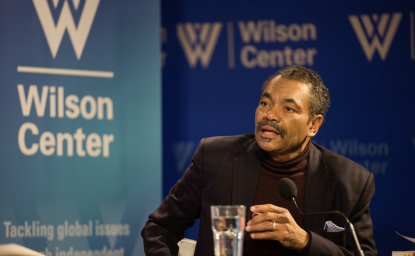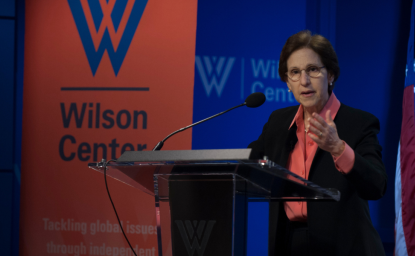
A blog of the Wilson Center
Q: How do you expect the Biden administration’s stance on the U.S.-Mexico border to affect migration and security between the U.S. and Mexico going forward?
A: I expect to see the Biden administration trying to hold Mexico more accountable for its deteriorating security situation, albeit gently. Over the past four years, we didn’t hear much from the Trump administration about organized crime in Mexico and its growing reach into new territories of the country. Trump’s hands-off approach on Mexico appears to have made up for his bullying of the country, in which he forced President Andres Manuel Lopez Obrador to house migrants as they waited for asylum court dates and build a human wall with tens of thousands of national guardsmen. In the post-Trump era, Biden will need Lopez Obrador to avoid a renewed, immediate humanitarian migrant crisis that would derail the administration’s efforts to legalize millions of undocumented immigrants. I expect a return to negotiation, give-and-take relationship, just like a traditional marriage of convenience.
Q: Since you started working on US-Mexico migration, what is the greatest change you’ve seen in the field?
A: Easily the greatest change I’ve seen is the loss of our moral authority as a nation, a beaming example of a country Mexicans, Latin Americans want to emulate, the belief the U.S. is the answer to their challenges. As a U.S. journalist I used to boast of freedom and protection of the press, and how strong, solid our democratic institutions were. Looking back, I feel we took that for granted. Additionally, in the U.S. I’ve seen a rise in xenophobia and a loss of our generosity, tolerance and compassion as a nation. That’s worrisome in an extremely divisive nation.
Q: Could you share any upcoming projects that you’re working on?
A: As an author I’m constantly thinking of the next book and there’s no shortage of material. As a journalist I’m following the impact of the partial border shutdown along the Texas-Mexico border. How did the absence of one another impact not just our two economies, but psychologically what has that done to us as a region. Historically, we turned to one another to move forward. A year later, where are we? How do we fit in each other’s lives?
Q: How has your time at the Wilson Center impacted your research and understanding of your field?
A: My fellowship at the Wilson Center was such a privilege, a tremendous asset in putting my book together. The opportunity to walk a few feet from my office and literally talk to the brightest, most insightful experts, who generously offer their time, and guidance. Library personnel who went out of their way to make sure you had all the information and went out of their way to seek even more from other sources. Additionally, I had my own tireless intern who assisted me in fact-checking material and constantly challenged me to rewrite portions of chapters by offering constructive criticism. Overall, a very supportive staff from experts to the friendly cooks at the in-house cafeteria.
Q: What is your favorite project or memory from the Wilson Center?
A: I was trying to figure out the role between NAFTA and immigration and I found myself in the office of one of the nation’s premiere global immigration experts, Jim Hollifield. He picked up the phone and asked Jim Dickmeyer to join us. Jim worked in Paraguay, Mexico City and Toronto. Suddenly, we’re having a robust conversation about the entire continent. We were so animated that Anthony Wayne, former ambassador to Mexico, Duncan Wood, director of the Mexico Institute and deputy director Chris Wilson, curiously peeked in to see what the commotion was all about. For the next few minutes or so, the four of us sat and had one of the most fascinating conversations about trade and migration from every conceivable point of view.
Q: Do you have any advice for a student interested in your field?
A: Yes, in every story you pursue think of every possible platform to tell that story. Think photography, video, audio. That’s both challenging, yet also presents so many opportunities to have stories reach so many more people. So if you’re still in school, thinking of journalism, learn everything there is to know in the field of mass communication. Strive to be a true, 21st century storyteller without losing sight of the basics of journalism: learn to listen. Seek truth. Be fair, honest with your sources and readers. Help us repair the trust lost after serving as a punching bag for the last administration.
Author
Author and Journalist; Mexico Bureau Chief, Dallas Morning News

Mexico Institute
The Mexico Institute seeks to improve understanding, communication, and cooperation between Mexico and the United States by promoting original research, encouraging public discussion, and proposing policy options for enhancing the bilateral relationship. A binational Advisory Board, chaired by Luis Téllez and Earl Anthony Wayne, oversees the work of the Mexico Institute. Read more

Explore More in Scholar & Alumni Spotlight
Browse Scholar & Alumni Spotlight
Olufemi Vaughan: Shaping Governance Through Scholarship and Dialogue

Dr. Maurice Jackson: The Sounds of Resistance Throughout History


